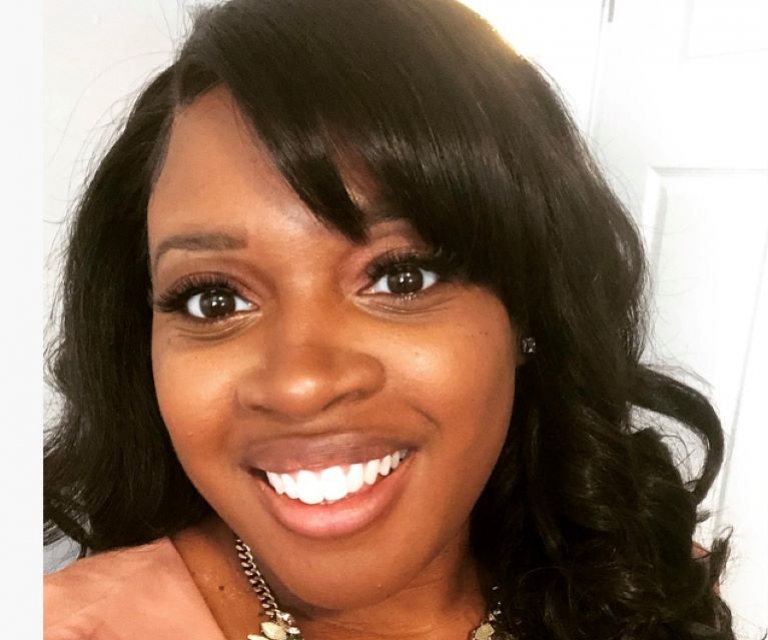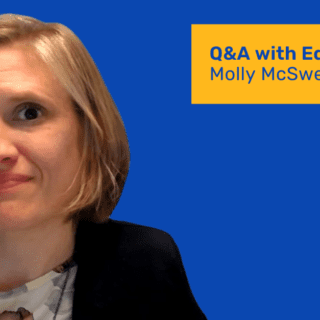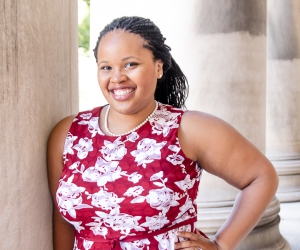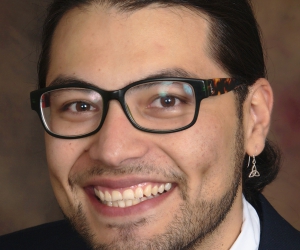
EdD Student Improves College Access for Pittsburgh Public Schools Students
Tasha Peacock, a first-year EdD student in Urban Education and a Gates Millenium Scholar alumna, has improved college access for local students through her work with the Pittsburgh Admissions Collaboration. In this Q&A, she discusses her role as Assistant Director at Pitt Undergraduate Admissions and Financial Aid, her degree program, and her passion for mentorship. Tasha’s quotes have been edited for length and clarity.
Tell us about your work in improving college access for Pittsburgh students.
Peacock: I helped to create a program called the Pittsburgh Admissions Collaboration (PAC), which focuses on college access and college knowledge for students in grades nine through 12 in Pittsburgh Public Schools. We teach them things they need to know to thrive in college, like financial literacy. High school seniors can choose to commit to the pathway program, which allows them to start at the Community College of Allegheny County (CCAC) and then transfer to Pitt for degree completion. This is the fourth year of the program and we have served more than 250 students.
How does your personal background motivate your work with college access?
Peacock: I grew up in the Homewood neighborhood and am a proud graduate of Pittsburgh Public Schools, so I feel a connection with the students I work with through the PAC program and also as the territory manager for Pittsburgh Public Schools. I love to work with students who live in similar neighborhoods as I did and to create new opportunities for them.
Tell me about your experience in the EdD program so far.
Peacock: I’m glad that I took the leap of faith to pursue my degree. Even though the pandemic has prevented us from being physically together in the classroom, I’ve developed relationships with my cohort members where we can bounce ideas off of each other. I also have a strong relationship with Educational Foundations, Organizations, and Policy professor Linda DeAngelo, who sits on the PAC advisory board. I like that we’re able to have in-depth conversations about PAC, my experiences as a doctoral student, and things that are happening in the world. I believe that whatever field you are in, relationships are key.
You play a key role in making college access more equitable at the University of Pittsburgh. What can you tell us about the university’s efforts to support underrepresented students?
Peacock: The great news is that Pitt has been admitting students with academic and personal promise without consideration of ability to pay. In recent years, the University has added new ways to help make a Pitt education a reality. The Pitt Success Pell Match was added in 2019. The program matches any Federal Pell Grant awarded to any of Pitt’s undergraduate students on all campuses. This year we had more than 700 Pell-eligible students join Pitt’s community. Pitt also updated the undergraduate admissions policy on all campuses to allow students applying for Fall 2021 to decide whether or not to include SAT or ACT scores as part of their application. I believe this policy will increase the number of applications from underrepresented students by removing a barrier that is historically biased in favor of affluent students who can take the test multiple times at multiple test sites with access to expensive test prep. An upcoming initiative to help support underrepresented students is Pitt’s first financial wellness director who was hired a few weeks ago. The new director will lead the efforts in creating programming that will move the needle on student debt and how students think about their own financial wellbeing.
Can you talk about your activism within the field of education?
Peacock: I have volunteered for A+ Schools, which is a community-based organization that focuses on equity within school districts. I talked to administrators about access, curriculum, and resources. I’ve also canvassed in local communities during school board elections. It was a great way to get my feet on the ground in educational policy.
On top of work, school, and volunteering, you also mentor middle-school students and young professional women. What motivates you to serve as a mentor?
Peacock: I believe in giving back and empowering other people, especially women. I mentor a young professional woman through the Young Nonprofit Professionals Network of Pittsburgh. I also mentored one young woman when she was in middle school; she just graduated from Penn State and is starting graduate school in Boston. I’m excited that I was able to be a part of her life.
What is your key takeaway from your experience with Pitt Education?
Peacock: My biggest takeaway from Pitt Education is the idea that your voice matters. I’m excited about what Dean Kinloch will do to further this mission. We have strong leadership.
What is a fun fact about yourself?
Peacock: I’ve met Tom Cruise! I was an extra in a bus stop scene with him for Jack Reacher, and I got to shake his hand. He looks the same in person as he does on TV.




